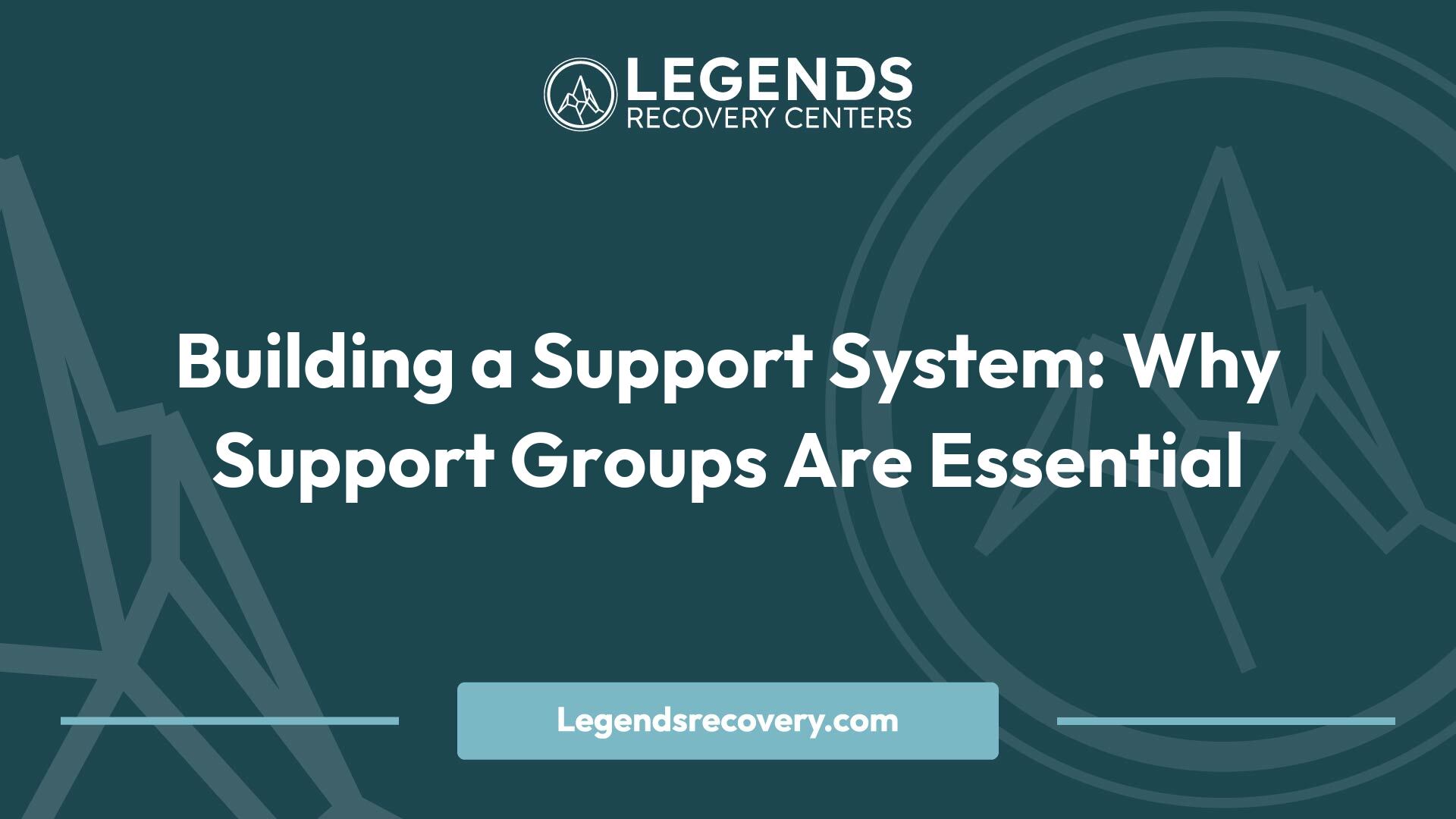Discover why support groups are essential for building a strong network of understanding and self-care. Stand together for a brighter tomorrow!

Support groups play a crucial role in providing individuals with the necessary emotional support and understanding. These groups act as a safe space for individuals facing similar challenges to share their experiences, thoughts, and emotions. By connecting with others who understand their struggles, individuals can feel validated, less isolated, and more supported in their journey.
When it comes to building coping strategies, support groups offer practical guidance, advice, and coping mechanisms to help individuals navigate difficult situations. By sharing coping strategies with one another, group members can learn new ways to manage stress, cope with triggers, and handle challenging emotions. Through this collective wisdom and shared experiences, individuals can enhance their resilience and ability to overcome obstacles.
Furthermore, support groups play a vital role in fostering self-care among participants. In a supportive environment, individuals can openly discuss their emotions, practice self-reflection, and prioritize their well-being. Support groups often provide a platform for members to explore self-care practices, set personal goals, and develop healthy habits. By nurturing self-awareness and self-compassion, support groups empower individuals to take proactive steps towards improving their mental and emotional health.
In summary, support groups offer a wealth of benefits, including emotional support, coping strategy development, and self-care promotion. By actively participating in these groups, individuals can cultivate a sense of community, gain valuable insights, and strengthen their resilience in the face of life's challenges. Support groups serve as a cornerstone of support and encouragement for individuals seeking to enhance their well-being and foster personal growth.

In the realm of support groups, individuals seeking assistance have several options to choose from based on their specific needs. Three common types of support groups that cater to various aspects of mental health and personal growth are mutual support groups, 12-step help groups, and therapy groups.
For those looking for peer-led and no-cost support, mutual support groups offer a valuable space for individuals to share experiences, offer encouragement, and provide emotional assistance to one another. It is essential to understand that while these groups can be instrumental in fostering a sense of camaraderie and understanding, they are not a substitute for professional medical care [1].
Another prevalent type of support group is the 12-step help group, which focuses primarily on aiding individuals in addiction recovery. These groups follow structured programs based on the 12-step model and are designed to provide guidance, encouragement, and accountability to those on the path to overcoming addiction. The emphasis on acknowledgment, amends, and ongoing sobriety sets 12-step groups apart as a key resource in the recovery process.
Unlike peer-led mutual support groups and the structured approach of 12-step help groups, therapy groups are typically facilitated by mental health professionals. These groups offer a more structured and therapeutic setting, where participants engage in guided discussions, skill-building exercises, and emotional processing. Therapy groups provide a safe environment for individuals to explore their emotions, develop coping strategies, and receive professional guidance on their journey towards healing and growth [1].
Each type of support group—mutual support groups, 12-step help groups, and therapy groups—serves a unique purpose and caters to varying needs within the realm of mental health and personal development. When considering joining a support group, it's essential to assess your individual requirements and preferences to find the most suitable fit that aligns with your goals and desired outcomes.
When it comes to engaging in support groups, active participation and finding the right fit are key aspects that can significantly impact the effectiveness of the support group experience. By understanding the dynamics within the group and being sensitive to the needs of oneself and others, individuals can derive maximum benefit from their involvement.
For individuals seeking support, regular attendance and active participation are essential components of a successful support group experience. Being present at meetings allows individuals to establish connections with other group members, share experiences, and gain valuable insights into their own challenges and coping mechanisms. According to HelpGuide, consistent attendance fosters a sense of community and encourages emotional support and understanding among group members.
Furthermore, active participation in group discussions allows individuals to engage with one another, exchange perspectives, and build coping strategies collectively. By sharing personal experiences and insights, members can offer valuable support to one another, leading to a more enriching and beneficial support group environment.
Support groups play a crucial role in fostering a sense of belonging and understanding among individuals facing similar challenges. According to Northeast Health Services, the interpersonal connections formed within these groups reduce feelings of isolation and contribute to improved mental well-being. Being empathetic, respectful, and attentive to the emotions and experiences of fellow group members creates a safe and supportive atmosphere that promotes personal growth and emotional healing.
It is important to be aware of the dynamics within the group and be sensitive to the diverse backgrounds and perspectives of its members. Recognizing and respecting individual differences and boundaries can help maintain a positive and inclusive group environment. Additionally, being mindful of group dynamics, such as communication patterns and interpersonal relationships, enhances the overall effectiveness of the support group discussions.
Before committing to a support group, individuals should take the time to assess whether the group aligns with their specific needs and preferences. As highlighted by Mayo Clinic, inquiring about the organization, leadership, guidelines, and confidentiality of the group is crucial in determining its suitability. Red flags signaling potential issues include lack of structure, inconsistent facilitation, and breaches of confidentiality.
Finding the right fit also involves evaluating the group's focus, format, and overall atmosphere to ensure that it aligns with personal goals and comfort levels. A well-organized and supportive group should provide a safe space for open discussion, mutual respect, and constructive feedback. By actively seeking out a support group that meets their needs, individuals can enhance their well-being and resilience on their journey towards healing and personal growth.
Peer support programs play a vital role in providing assistance and connection for individuals and caregivers dealing with health conditions. These programs offer a combination of informational and psychosocial support, reducing social isolation and fostering a sense of community among those facing similar challenges.
Engaging in peer support programs helps individuals access valuable information about their health conditions and treatments. Additionally, peer support offers psychosocial support, enabling participants to share experiences, emotions, and coping strategies. By connecting patients and caregivers with others who have firsthand knowledge of similar health issues, these programs create a supportive environment where individuals can feel understood and supported.
Participation in peer support programs yields numerous benefits for both individuals managing health conditions and their caregivers. These programs provide psychosocial support, practical self-care advice, guidance on navigating the healthcare system, and connections to community resources. Peer support workers, individuals who have successfully navigated recovery, play a significant role in helping others engage in recovery processes and reducing the likelihood of relapse. The shared experience of overcoming mental health or substance use challenges forms the basis of peer recovery support relationships, emphasizing empathy and shared experiences in assisting individuals on their recovery journey.
While peer support programs offer valuable support, they also face certain challenges. These include emotional barriers for peer supporters, maintaining fidelity to program protocols, ensuring the effective delivery of services, matching peer supporters with recipients effectively, and addressing skepticism from professional providers. Overcoming these challenges is imperative to ensure the continued success and impact of peer support initiatives.
By leveraging the benefits of peer support programs and understanding the challenges they may encounter, individuals and caregivers can access a network of understanding individuals who share similar experiences and provide invaluable support on the journey towards improved health and well-being.
When it comes to seeking support and guidance, online support groups have become increasingly popular due to their convenience and accessibility. These virtual communities provide a platform for individuals to connect with like-minded people facing similar challenges, all from the comfort of their own homes. However, it's essential to consider the limitations and unique considerations associated with online support groups, as well as how their effectiveness compares to in-person groups.
Online support groups offer a vast array of options, with tens of thousands of groups available nationally and globally, catering to a wide range of problems and conditions. These groups serve as a convenient alternative to traditional in-person meetings, making them suitable for individuals who may face barriers such as geographical distance, transportation issues, or scheduling conflicts.
Participating in online support groups allows individuals to engage with a diverse community of peers who share similar experiences and can provide valuable insights and emotional support. The virtual setting also eliminates the need for physical travel, making it easier for individuals to access support when they need it most.
While online support groups offer numerous benefits, it's crucial to be aware of the potential limitations and considerations associated with this format. Some risks include the presence of misinformation, challenges in ensuring confidentiality, and difficulties in assessing the credibility of the information shared within the group.
Additionally, the lack of face-to-face interaction and non-verbal cues in online support groups can sometimes hinder the establishment of deep emotional connections and trust among members. This absence of in-person communication may impact the overall effectiveness of the support group experience for some individuals.
When evaluating the effectiveness of online support groups compared to traditional in-person groups, it's important to consider the role of face-to-face interactions in managing stress [4]. In-person meetings provide opportunities for vocal tone, eye contact, and physical touch, all of which contribute to a more profound sense of emotional support and connection.
While online support groups offer flexibility and convenience, the benefits of in-person interactions in managing stress are unparalleled. Prioritizing in-person connections can provide individuals with a more immediate and impactful source of support, enhancing their ability to cope with challenges and fostering a sense of community and belonging.
In the realm of stress management, social support plays a pivotal role in helping individuals navigate challenges and maintain overall well-being. It provides a crucial buffer against stressors, aiding in the reduction of the body's stress response.
Social interaction has a profound impact on stress reduction. When individuals engage in social interactions, the body releases hormones that promote a sense of calm and positivity. This counteraction to the body's natural “fight or flight” response helps in inducing relaxation and restoring the nervous system to a balanced state. Ultimately, this process aids in diminishing stress levels and fostering an environment of overall well-being.
The benefits of face-to-face interactions, especially with close friends and family, extend beyond mere communication. Spending quality time with loved ones has been linked to improved mood regulation and reduced stress levels. In particular, interactions with close friends trigger the release of more calming hormones, offering enhanced emotional support and stress relief compared to brief interactions with acquaintances or strangers. These deeper connections serve as a robust pillar of support in times of stress and adversity [4].
Social connections form the backbone of effective stress management, proving to be invaluable in navigating various stressors and life challenges. A reliable social support network is essential for coping with a range of stressors, from everyday worries to more significant adversities like serious illnesses or personal losses. Social support plays a critical role in helping individuals cope with work-related stress, financial crises, and major life upheavals, emphasizing the profound impact of social connections on one's ability to withstand and overcome life's trials.
Recognizing the significance of social support and face-to-face interactions in stress management underscores the importance of fostering meaningful connections and building a robust support system to enhance overall well-being and resilience in the face of life's challenges.
[2]:
[3]:
[4]: